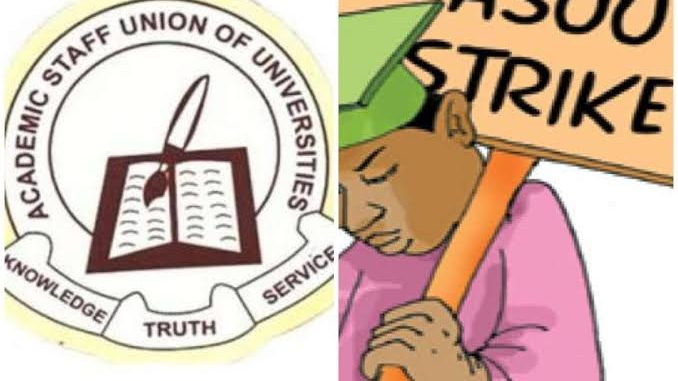
‘ASUU strikes’ have become a familiar and disturbing refrain in the Nigerian body polity.
They have probably become the gravest threat to the Nigerian university system, in particular, and the Nigerian education sector in general. Since the return to democratic rule in 1999, ASUU has embarked on nationwide strike more than 20 times during which students have lost a cumulative period of almost four years of the academic calendar. And this is not taking into consideration the avalanche of ‘local ASUU strikes’, whereby a particular vice-chancellor, University Governing Council or state government is at loggerheads with the academic staff of a specific university
The Nigerian education system keeps frustrating ambitions and aspirations with the frequent culture of disruptions to the process of acquiring knowledge. The Academic Staff Union of Universities (ASUU) recently announced a one-month warning strike to ensure the government stops reneging on agreements with the union.
Sadly, it’s the second industrial action in less than two years. The latest episode calls for concern and a rethink; this is the 20th strike since Nigeria’s return to democracy in 1999. Despite these actions, there is little to show for it.
ASUU strikes have done more harm than good on the education sector with students bearing most of the accruing costs from the occurrences.
As a result of the regular strikes, most students resort to venturing into town for opportunities to earn stipends. Some of them end up securing employment with big organisations.
Regular strikes rob off academic time from school calendars and upon resumption, academics tend to rush academic work which might mean forgoing important parts of the course work. Ultimately, this has a knock-on- effect on the intellectual capacity of the student
Embarking on strike causes students to spend more time than the statutory duration in school. This has an effect on the employment pattern where age is an important consideration for entry-level jobs. An increase in youthful crime and immorality is not unrelated to the incessant ASUU strikes. The saying: “An idle hand is the devil’s workshop” aptly describes the preoccupation of some youth while schools are shut. Lack of vision and mission makes a handful of youth wander about with no direction. Thus, engaging in all sorts of illegal businesses like cyber-crime, gambling, fraudulent acts, etc.
Incessant ASUU strikes naturally extends the period a student spends in school and the attendant cost implication.
Some undergraduates are known to spend up to seven years for a four-year course due to ASUU strikes. It is common to hear students talk about their year of graduation for four years course by adding mathematical integer “X” representing an unknown number of years. This has a ripple effect on some forms of employment, like in the banking industry and military where age is an essential consideration for entry-level job positions.
Frustration continues for Nigerian students’.












Hackdra is a cyber security company that can provide smart contract auditing, pen-testing, bug bounty, blockchain, web3, DeFi, NFT, and ARM services with AI.